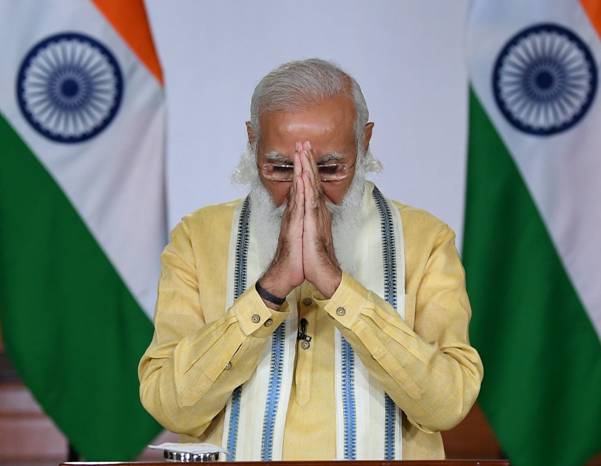New Delhi, NFAPost: Government of India will provide free jabs to the states for inoculation of everyone aged above 18 years, said Prime Minister Narendra Modi on Monday as he outlined his government’s vaccination policy.
In a televised address to the nation, the Prime Minister said Centre will buy 75% of the total vaccine production, including 25% of the state quota, from the manufacturers and give it free to the state governments.
“No state government of the country will have to spend anything on the vaccine. Only the Government of India will provide free vaccine to all the countrymen,” Modi asserted.
Modi said private sector hospitals can continue to procure 25% of vaccines, but their service charge would be capped at Rs 150 per dose over fixed price of the vaccine.
Referring to the criticism that Centre left has states to fend for themselves when it came to vaccine procurement, Modi said the Centre has changed its vaccine policy only on the demand from states.
“But some states are now saying that the previous system was better. So, a decision has been taken to revert to the earlier policy that was in place before May 1.”
The Centre’s vaccine policy has been has been widely criticised — by multiple state governments to civil society to courts of the country — amid severe shortages. The Supreme Court had also recently questioned the Centre over its vaccination strategy.
Experts even warned that India’s sluggish inoculation drive might leave enough room for the deadly virus to hit the country for the third time. PM Modi also announced that free food grain scheme under Pradhan Mantri Garib Kalyan Anna Yojana (PMGKAY) will now be extended till Diwali.
“In this time of pandemic, the government is standing by the poor with every need, as their partner. By November, free food grains will be available in fixed quantity every month to more than 800 million countrymen,” Modi said.
Reacting to PM Modi’s latest announcements, Aditi Nayar, chief economist at Icra said: “Higher spending towards free foodgrains until Diwali and wider vaccine provision, the already announced enhancement in fertiliser subsidy, as well as the likely enlargement in the MGNREGA allocation, now clearly outweigh the savings of around Rs 1 trillion from the prepayment of the FCI’s liabilities in FY21, indicating a net expansion in expenditure above the level budgeted for FY22.”
“This in addition to the potential sharper slippage in disinvestment inflows relative to the higher-than-budgeted surplus transfer by the RBI, suggests a high likelihood that the Government of India’s fiscal deficit will exceed the budgeted Rs 15.1 trillion. With fiscal costs mounting amid rising crude oil prices, G-sec yields will display a hardening bias despite the announcement of G-SAP 2.0. As anticipated, free foodgrain provision has been extended by the Government, which will help to buffer demand at the bottom of the pyramid amidst an uncertain economic outlook.”
Speaking on the ferocious nature of the pandemic, Modi said: “This is the biggest epidemic in the last hundred years, it is a tragedy. The modern world had neither seen nor experienced such an epidemic. Our country has fought together on many fronts with such a big global pandemic.”
He said his government has increased the vaccination coverage in country to 90% from just 60% in 2014. “If you look at the history of the last 50-60 years, you will know that it used to take decades for India to get the vaccine from abroad. Vaccine work used to be completed abroad, even then the work of vaccination could not start in our country,” Modi further added.
“To increase vaccine availability, the process of procuring vaccines from abroad has been sped up. Experts have also expressed concerns about children. In this direction, the trial of two vaccines is underway. Research is being conducted for a nasal vaccine in the country,” the Prime Minister said.
On Monday, India reported its lowest daily case count in over two months, a sign that the second wave of coronavirus is starting to fade away.





